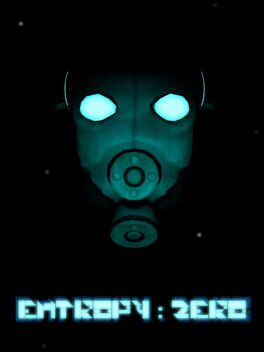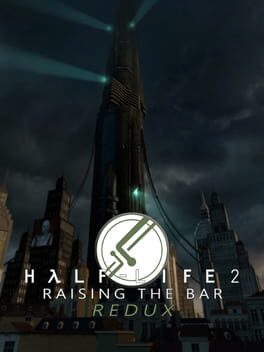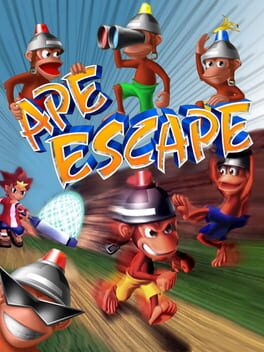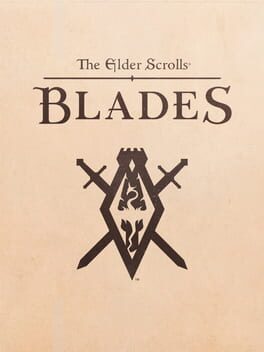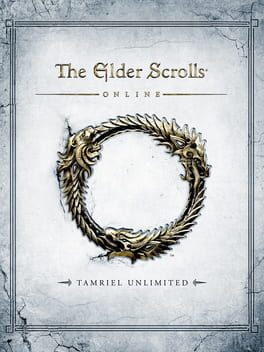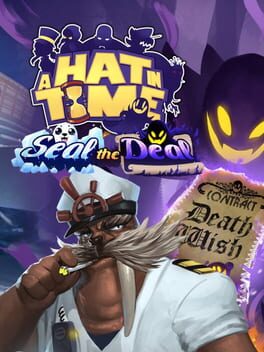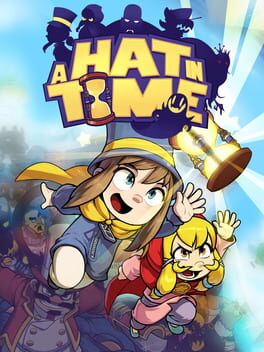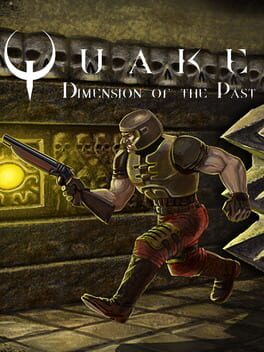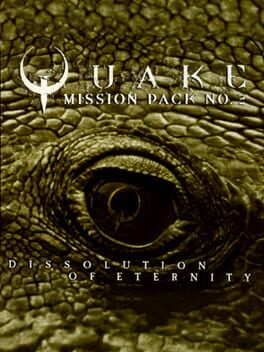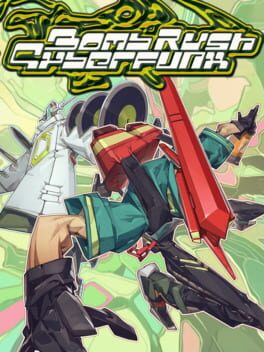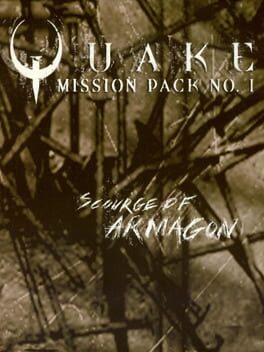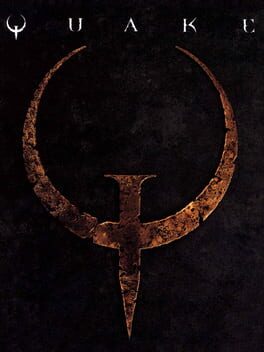Cookington
2017
Pretty alright! The perspective shift is interesting and Entropy Zero does understand that Half-Life level design flow and sense of progression as you move through the environment. There's some interesting attempts at doing unique stuff like a stealth section, areas in complete darkness requiring creative thinking with your surroundings and a big climactic final boss, all of which can vary with quality but overall it's still a mostly good time playing it again since it first came out. I've heard the sequel is a drastic step up in quality and I'm excited to eventually give it a go at some point.
2004
Reviewing Garry's Mod feels like an incredibly silly endeavor because it's more of a game that holds a lot of sentimental value for the sheer ridiculous number of hours I dumped into it over the past decade. It can be an unstable technical mess and the community absolutely has worsened as the years have gone by with updates mostly being life support bugfixes more than anything, but it certainly won't stop me now and probably still years later reinstalling it to screw around with friends.
The Half-Life 2 Beta is one of the most interesting things to come out of a development cycle in this industry, shedding a lot of light on how much stuff can change especially for a game that was known to be as troubled as HL2 before it released. The thing with learning about the Beta is that it's far more interesting to read about it and ponder what could have been rather than actually seeing it made into a final product, as both the leaks as well as a lot of fan-made mods over the years have continued to show. There's a reason why the final product we got for Half-Life 2 was the way it was, and it wasn't out of Valve trying to make a "lesser product;" as interesting as many of those ideas and concepts were, in practice a lot of them were very much cut for a reason.
Real quick on gameplay, it's Half-Life 2. I've never cared for the modding community's obsession with hyper-active smooth weapon animations and reloads because Gordon shouldn't be this gung-ho professional hitman with knowledge on every weapon he picks up, and I still don't care for its representation here even if every gun is modeled quite nicely. Combine soldiers still hitscan just as much as ever if not maybe more because of the seemingly faster firerate on the MP7, but the level design is usually very generous about health items. Level design becomes more cluttered and messy however, with issues leading the player in the right direction, something a Half-Life game absolutely needs to nail and something that leads to my bigger issues in general with the mod.
Raising the Bar: Redux has great art direction and a keen eye for visual detail within the limits of the Source engine, but it just lacks this flow to it that any Half-Life game really needs to have. Getting lost in where the hell Gordon is even supposed to be at any given point is extremely common, and while Half-Life games have always toed a line on believable locations with the ways you navigate through them if you think about them for more than a minute, Raising the Bar: Redux's version of City 17 is just a cluttered mess with weird back alleys and buildings that don't make sense in how they're interconnected. Progression through the environment feels jumbled and messy, stakes raising and lowering seemingly at random and far too suddenly, and RtB:R also has trouble with trying to fill in the blanks and making changes to the unfinished beta storyline. Some of the most interesting parts of the beta storyline such as the dangerous polluted air are mysteriously absent, and while there's attempts here and there of trying to create an oppressive atmosphere, it never quite coalesces into bringing it to a reality here. Some of my favorite pieces of concept art like the mysterious vortigaunt energy tank, this far more deeply menacing dark tram area with the Citadel highlighted within fog in the distance, the deep blue smoky views of City 17 itself, or even this more radioactive toxic take on the canals for the airboat chapter; they're gorgeous pieces of art that also help to really create this image of what makes the HL2 Beta so interesting and I just don't think Raising the Bar: Redux really captures that. The efforts made by this small team are impressive on a technical level and I'm still interested enough to see where they take the mod in the future with wherever their own version of the story goes, but there's too much of this that feels raw and missing that spice that would make this something truly great, at the end of the day just being merely fine.
Real quick on gameplay, it's Half-Life 2. I've never cared for the modding community's obsession with hyper-active smooth weapon animations and reloads because Gordon shouldn't be this gung-ho professional hitman with knowledge on every weapon he picks up, and I still don't care for its representation here even if every gun is modeled quite nicely. Combine soldiers still hitscan just as much as ever if not maybe more because of the seemingly faster firerate on the MP7, but the level design is usually very generous about health items. Level design becomes more cluttered and messy however, with issues leading the player in the right direction, something a Half-Life game absolutely needs to nail and something that leads to my bigger issues in general with the mod.
Raising the Bar: Redux has great art direction and a keen eye for visual detail within the limits of the Source engine, but it just lacks this flow to it that any Half-Life game really needs to have. Getting lost in where the hell Gordon is even supposed to be at any given point is extremely common, and while Half-Life games have always toed a line on believable locations with the ways you navigate through them if you think about them for more than a minute, Raising the Bar: Redux's version of City 17 is just a cluttered mess with weird back alleys and buildings that don't make sense in how they're interconnected. Progression through the environment feels jumbled and messy, stakes raising and lowering seemingly at random and far too suddenly, and RtB:R also has trouble with trying to fill in the blanks and making changes to the unfinished beta storyline. Some of the most interesting parts of the beta storyline such as the dangerous polluted air are mysteriously absent, and while there's attempts here and there of trying to create an oppressive atmosphere, it never quite coalesces into bringing it to a reality here. Some of my favorite pieces of concept art like the mysterious vortigaunt energy tank, this far more deeply menacing dark tram area with the Citadel highlighted within fog in the distance, the deep blue smoky views of City 17 itself, or even this more radioactive toxic take on the canals for the airboat chapter; they're gorgeous pieces of art that also help to really create this image of what makes the HL2 Beta so interesting and I just don't think Raising the Bar: Redux really captures that. The efforts made by this small team are impressive on a technical level and I'm still interested enough to see where they take the mod in the future with wherever their own version of the story goes, but there's too much of this that feels raw and missing that spice that would make this something truly great, at the end of the day just being merely fine.
1999
This is going to be kind of more of a personal anecdote than just talking about Ape Escape. Ape Escape isn't a game I have childhood nostalgia for, I never had a PS1 growing up and was always more of a Nintendo (and for a while Xbox 360) kid. I played it once quite a few years ago and I can't exactly recall when, but I know that I was playing it while sitting in a call with friends, some that I still know today and some that I don't really know where they went off to afterwards. Maybe it was when we were still on Skype too before Discord? I'm not fully sure. I know that at the time I had thought it was cute and fun but I also hadn't really paid it too much mind and again stopped at some point without finishing it. Years passed since then, and I hadn't really thought about the games besides the Discord server with my closest friends having a goofy little GIF from one of the games set for our server icon. I've been dealing with my own life issues after graduating from my community college several months ago with games and my friends having been both an escape and way to pass time as I wait anxiously for hopeful good news on things like jobs, but a problem I've slowly grown to notice has been my utter lack of patience with things in general.
I used to think about it jokingly with friends but as of late I feel like it's began to directly affect things I enjoy including media and entertainment. A lack of patience with little annoyances in games that grow exponentially more than they really needed to that I would reflect back on later and think "I didn't need to be that harsh towards that", or the growing frustrations I've had from my own addictions to social media. I don't like saying that modern gaming sucks because I genuinely don't believe that and think it's an absurd overexaggeration; there's massive issues with this industry, but the same can be said for other media like film and TV. There's more of it than ever before alongside a wider audience that's also more vocal than ever before thanks to how prevalent and almost unavoidable social media has become. That constant attention to social media, the need to endlessly scroll through posts and comments no matter how incessantly obnoxious and stupid it can get, the constant feed of news that angers and annoys in the personal hobbies I follow and care about. I personally do and should know better than to be opening up Twitter on my phone and end up scrolling that "For You" tab because it continues feeding that cynical cycle of frustration, but I continue to do it anyways out of habit and it finally came up to a breaking point recently. Making myself read posts from people I don't know and don't like talking with their head up their ass about things like tech or, with this industry, how game development supposedly works or how one platform is so much worse than the other and how dare you for enjoying something from name brand here. How dare I be excited for something that I want to play because it came from so-and-so and because it's so chock full of bad thing this and bad thing that. There was a realization I had that I had this feeling, this need to defend the opinions I had, that I somehow had to justify why I felt the way I did on media I played or watched, like I needed to convince others of my own feelings towards something.
The cynicism of social media and more especially within the video game community made that feel like justifying myself was something I had to do even if it was towards my own friends, towards my boyfriend when I absolutely did not need to. And while it's an incredibly silly feeling to be writing such a long wall of text about all this (and especially when at the time of writing, it's plainly obvious I'm mad about how much pure vitriol Twitter loves to push to me about Starfield, a game that I'm excited for because I just vibe with everything I've seen of it and just want to play for myself regardless of what I hear about it), there was a point where I needed to just make myself stop looking at those feeds. I tried to make myself stop opening Twitter or Reddit that much late at night and if I was going to stay awake that late, I should just go play a game that I could take the time for and just try to enjoy, feel the vibe of, let the little frustrations relax themselves and just spend time playing and appreciating.
Ape Escape came to mind first. It might have just been because I saw somewhere that it was relatively short, it might have been remembering that it was kind of fun for a platformer, maybe I had a curiosity for playing PS1 stuff again and I wanted to just play something from that console on an emulator trying to make it as faithful to the original experience; good old 240p and none of the enhancements DuckStation allowed for. It was probably all of those things but regardless of the reasons, what I hadn't expected was just how much this time around, all this time later and purely on a whim needing a break from everything, Ape Escape was the game that I think I needed most right this moment.
Ape Escape isn't just a game that is "full of charm", it's utterly bursting at the seams with such a love and care for pure joyful experimentation down to a player input level. The colors have such intense vibrancy to them, with not just every world theme being uniquely distinct but even down to a per-level basis that exudes playfulness in these time periods that you travel between. These places never feel generic thanks to not just distinctions like one level in the first world being in a rainy swamp with lots of water navigation to the next having you climb up to a volcano area where you try figuring out how you're going to capture a monkey that's riding a dinosaur, but also a soundtrack that absolutely pops the fuck off. I have no idea how it came to be that they picked the composer they did for this game, and I have no idea how it led to a 3D platformer that's full of high upbeat electronic music with a slamming drum and bass but it works to such a genius degree. The handful of levels that catch you off guard too like the one where see this big beast that's just, chilling out inside a wall on the beach; there's no music, just ambience as you walk around exploring a bit, realizing that oh the next area is inside it, and once you're in the music just suddenly kicks in and blasts off with this high intensity strangely electric sounding tune that I just can't get enough of oh my god
But what made my time with Ape Escape so joyful and wonderful was how much passion you could feel emanating from the developers in the final product just playing it. Every single creative choice here was clearly made because the developers thought it would be fun and unique, something that you wouldn't have seen in another game like it at the time even within the 3D platforming genre. A lot of it stems from the forced requirement of the DualShock controller which at the time, most developers didn't really know what to do with and Sony themselves needed something that would sell the accessory. Before the standard for making that second stick work the camera was made years later, Japan Studio's solution was to go absolutely hog wild and see what weird ideas for tools and mechanics could involve using the sticks for and it's such a creative approach to game design that not only have I not really seen even in today's games, but one that has still aged shockingly spectacularly well. Every single tool in your arsenal on the hunt for catching monkeys makes you use the right stick to use them, but it never feels gimmicky or unintuitive because every tool just makes sense to do so. Your saber for hitting enemies and stunning monkeys can be swung in any direction, but twirling the stick makes you spin around too which has its own uses for stuff like switches in the environment or keeping yourself safe from multiple enemies. Being able to swing the net in any direction regardless of if you're standing, running or crawling, and importantly regardless of the direction you're facing doing any of those makes capturing monkeys feel snappy and precise; I never felt like I was fumbling with my movement in difficult areas to catch something in the heat of the moment, and mistakes that were made were purely my own fault. The ideas for other gadgets are just as strange and creative, but they never feel out of place in the full arsenal like an RC car that of course you control with the right stick that works wonderfully for puzzles and hazards that make you multitask, or a hula hoop that you spin around to go faster and hit enemies with, or the slingshot that makes you pull back on the right stick to ready and fire. These tools don't just fit the playful tone that the game aims for across the board, it importantly makes them feel natural to use at all the right times rather than gimmicks.
And even then, the times the game does want to have gimmicky stuff that plays with the controls, they never really annoyed me in any sense and I still found joy in the times the game wanted to use them because they further express that creativity and experimentation. Sure, the rowboat is janky as hell and is next to impossible to steer straight forward consistently, but it's never punishing to actually use and it's still entertaining in its own way! Did the tank need to use both sticks to move and turn? Not really, but it felt silly and somehow satisfying to eventually get the hang of using the thing and especially that one time the game made me try to drive it along a narrow track which felt great to make it to the end of. This playfulness even extends to the three optional minigames you unlock for just exploring and collecting the big tokens you sometimes come across, all of which experiment with the controls in fun ways that match up with the rest of the game. Hell, there's still more insane attention to detail and fun like every monkey in the game being named and having silly little descriptions that would regularly get a laugh out of me along with stats if you spend the time to check the radar on all of them. The developers didn't need to put these little extras in or needed to go this hard with a game that was meant to just "show off what the DualShock was capable of", but the passion to do something special and creative oozes out of every part of Ape Escape in a way that I can't help but utterly admire.
It didn't really matter those brief couple of seconds now and then when something didn't go the way I expected or a platforming mishap because of the sometimes janky depth perception given by a sometimes nutty camera and wobbly polygons the PS1 was known for, or maybe that last level that goes on for just a wee bit too long for my liking. Even during those moments, the sheer joy Ape Escape has was a vibe that I could just continue to jive with in a way that made me respect it so much more. It was enough so that even after the credits had rolled, I still kept playing because I wanted to catch every monkey on the second go-around for that extra secret final boss. Even if I don't really want to bother with 100% completion (because that involves doing the time trials which, yeah no thanks lmao), I'm more than okay with that. It seems silly sitting here now heaping so much praise onto a goofy little 3D platformer collect-a-thon where you run around capturing monkeys with silly outfits and sometimes silly weapons, but it was the right game I needed at the right time. It's the game I needed to just sit back and take a break from things, and play something that dances to the sound of its own tune hoping that you dance alongside it. I'm glad I did all these years later.
I used to think about it jokingly with friends but as of late I feel like it's began to directly affect things I enjoy including media and entertainment. A lack of patience with little annoyances in games that grow exponentially more than they really needed to that I would reflect back on later and think "I didn't need to be that harsh towards that", or the growing frustrations I've had from my own addictions to social media. I don't like saying that modern gaming sucks because I genuinely don't believe that and think it's an absurd overexaggeration; there's massive issues with this industry, but the same can be said for other media like film and TV. There's more of it than ever before alongside a wider audience that's also more vocal than ever before thanks to how prevalent and almost unavoidable social media has become. That constant attention to social media, the need to endlessly scroll through posts and comments no matter how incessantly obnoxious and stupid it can get, the constant feed of news that angers and annoys in the personal hobbies I follow and care about. I personally do and should know better than to be opening up Twitter on my phone and end up scrolling that "For You" tab because it continues feeding that cynical cycle of frustration, but I continue to do it anyways out of habit and it finally came up to a breaking point recently. Making myself read posts from people I don't know and don't like talking with their head up their ass about things like tech or, with this industry, how game development supposedly works or how one platform is so much worse than the other and how dare you for enjoying something from name brand here. How dare I be excited for something that I want to play because it came from so-and-so and because it's so chock full of bad thing this and bad thing that. There was a realization I had that I had this feeling, this need to defend the opinions I had, that I somehow had to justify why I felt the way I did on media I played or watched, like I needed to convince others of my own feelings towards something.
The cynicism of social media and more especially within the video game community made that feel like justifying myself was something I had to do even if it was towards my own friends, towards my boyfriend when I absolutely did not need to. And while it's an incredibly silly feeling to be writing such a long wall of text about all this (and especially when at the time of writing, it's plainly obvious I'm mad about how much pure vitriol Twitter loves to push to me about Starfield, a game that I'm excited for because I just vibe with everything I've seen of it and just want to play for myself regardless of what I hear about it), there was a point where I needed to just make myself stop looking at those feeds. I tried to make myself stop opening Twitter or Reddit that much late at night and if I was going to stay awake that late, I should just go play a game that I could take the time for and just try to enjoy, feel the vibe of, let the little frustrations relax themselves and just spend time playing and appreciating.
Ape Escape came to mind first. It might have just been because I saw somewhere that it was relatively short, it might have been remembering that it was kind of fun for a platformer, maybe I had a curiosity for playing PS1 stuff again and I wanted to just play something from that console on an emulator trying to make it as faithful to the original experience; good old 240p and none of the enhancements DuckStation allowed for. It was probably all of those things but regardless of the reasons, what I hadn't expected was just how much this time around, all this time later and purely on a whim needing a break from everything, Ape Escape was the game that I think I needed most right this moment.
Ape Escape isn't just a game that is "full of charm", it's utterly bursting at the seams with such a love and care for pure joyful experimentation down to a player input level. The colors have such intense vibrancy to them, with not just every world theme being uniquely distinct but even down to a per-level basis that exudes playfulness in these time periods that you travel between. These places never feel generic thanks to not just distinctions like one level in the first world being in a rainy swamp with lots of water navigation to the next having you climb up to a volcano area where you try figuring out how you're going to capture a monkey that's riding a dinosaur, but also a soundtrack that absolutely pops the fuck off. I have no idea how it came to be that they picked the composer they did for this game, and I have no idea how it led to a 3D platformer that's full of high upbeat electronic music with a slamming drum and bass but it works to such a genius degree. The handful of levels that catch you off guard too like the one where see this big beast that's just, chilling out inside a wall on the beach; there's no music, just ambience as you walk around exploring a bit, realizing that oh the next area is inside it, and once you're in the music just suddenly kicks in and blasts off with this high intensity strangely electric sounding tune that I just can't get enough of oh my god
But what made my time with Ape Escape so joyful and wonderful was how much passion you could feel emanating from the developers in the final product just playing it. Every single creative choice here was clearly made because the developers thought it would be fun and unique, something that you wouldn't have seen in another game like it at the time even within the 3D platforming genre. A lot of it stems from the forced requirement of the DualShock controller which at the time, most developers didn't really know what to do with and Sony themselves needed something that would sell the accessory. Before the standard for making that second stick work the camera was made years later, Japan Studio's solution was to go absolutely hog wild and see what weird ideas for tools and mechanics could involve using the sticks for and it's such a creative approach to game design that not only have I not really seen even in today's games, but one that has still aged shockingly spectacularly well. Every single tool in your arsenal on the hunt for catching monkeys makes you use the right stick to use them, but it never feels gimmicky or unintuitive because every tool just makes sense to do so. Your saber for hitting enemies and stunning monkeys can be swung in any direction, but twirling the stick makes you spin around too which has its own uses for stuff like switches in the environment or keeping yourself safe from multiple enemies. Being able to swing the net in any direction regardless of if you're standing, running or crawling, and importantly regardless of the direction you're facing doing any of those makes capturing monkeys feel snappy and precise; I never felt like I was fumbling with my movement in difficult areas to catch something in the heat of the moment, and mistakes that were made were purely my own fault. The ideas for other gadgets are just as strange and creative, but they never feel out of place in the full arsenal like an RC car that of course you control with the right stick that works wonderfully for puzzles and hazards that make you multitask, or a hula hoop that you spin around to go faster and hit enemies with, or the slingshot that makes you pull back on the right stick to ready and fire. These tools don't just fit the playful tone that the game aims for across the board, it importantly makes them feel natural to use at all the right times rather than gimmicks.
And even then, the times the game does want to have gimmicky stuff that plays with the controls, they never really annoyed me in any sense and I still found joy in the times the game wanted to use them because they further express that creativity and experimentation. Sure, the rowboat is janky as hell and is next to impossible to steer straight forward consistently, but it's never punishing to actually use and it's still entertaining in its own way! Did the tank need to use both sticks to move and turn? Not really, but it felt silly and somehow satisfying to eventually get the hang of using the thing and especially that one time the game made me try to drive it along a narrow track which felt great to make it to the end of. This playfulness even extends to the three optional minigames you unlock for just exploring and collecting the big tokens you sometimes come across, all of which experiment with the controls in fun ways that match up with the rest of the game. Hell, there's still more insane attention to detail and fun like every monkey in the game being named and having silly little descriptions that would regularly get a laugh out of me along with stats if you spend the time to check the radar on all of them. The developers didn't need to put these little extras in or needed to go this hard with a game that was meant to just "show off what the DualShock was capable of", but the passion to do something special and creative oozes out of every part of Ape Escape in a way that I can't help but utterly admire.
It didn't really matter those brief couple of seconds now and then when something didn't go the way I expected or a platforming mishap because of the sometimes janky depth perception given by a sometimes nutty camera and wobbly polygons the PS1 was known for, or maybe that last level that goes on for just a wee bit too long for my liking. Even during those moments, the sheer joy Ape Escape has was a vibe that I could just continue to jive with in a way that made me respect it so much more. It was enough so that even after the credits had rolled, I still kept playing because I wanted to catch every monkey on the second go-around for that extra secret final boss. Even if I don't really want to bother with 100% completion (because that involves doing the time trials which, yeah no thanks lmao), I'm more than okay with that. It seems silly sitting here now heaping so much praise onto a goofy little 3D platformer collect-a-thon where you run around capturing monkeys with silly outfits and sometimes silly weapons, but it was the right game I needed at the right time. It's the game I needed to just sit back and take a break from things, and play something that dances to the sound of its own tune hoping that you dance alongside it. I'm glad I did all these years later.
I'm going to put up the controversial hot take and say that I think AC6 is mid when I really wish it wasn't because there's so much here that fires on all cylinders that I utterly adore as someone who's played the past Armored Core games.
Compared to a lot of others here, I actually really liked the story! It's a lot more easily digestible compared to previous entries which were pretty stone cold in their direction and style. AC6 regularly has radio comms with several main characters across the whole game, and there's some good reveals towards the end of the game that I was satisfied with and pleasantly surprised by with how player choice was handled. Previous AC games have always had "decision" missions that would affect who you would side with and the ending you got, but AC6 managed to surprise me with how what I thought was the "proper" choice ended up far more bitter than I was expecting. Great stuff! It might be presented a little on the drab side of things, but I still found it effective and honestly still more interesting than most FromSoftware games I've played, considering how often important story details are left optional and out of the way in their other titles.
Customization here is the most accessible it's ever been in a series notoriously known for being complex with its focal point mech building. The stats and numbers game has been made far easier to understand than it's ever been before thanks to helpful tooltips and an incredibly clean interface that makes it easy to tell what you changed and how it affects your build as a whole, along with a test arena with enough options to really put your mech through its paces to make sure it works for you.
Getting the parts you want to try in the first place has also been made more forgiving than its ever been, thanks to not just 100% full price back refunds on parts you sell back like past AC games allowed, but also a mission replay option that both gives replay incentive to chase S-ranks and also get even more money. If you were willing to grind for it, it's very much possible (maybe even encouraged?) to just straight up buy every part in the shop if you so pleased. Weapons and leg options in the shop also provide extremely helpful videos that show you exactly what they do before you buy them, saving you time and giving you a clear idea of their strengths and weaknesses.
Hell, missions basically don't cost you anything anymore like they did in previous games. Where it was possible to royally screw yourself over by losing money and going bankrupt if you kept failing missions and/or coming out of missions badly damaged and with too much ammo wasted, Fires of Rubicon essentially showers you in money. Repairs and ammo may still have a dollar amount attached to them, but mission payouts always vastly exceed any cost that could be remotely worrying. I think I've only seen one person on Twitter who somehow managed to make a mission go into the negatives and they had to purposefully go far out of their way to make it happen on like the one mission that doesn't pay you a base amount if you don't do basic exploring. Missions don't even send you back to the main menu anymore on failure, rather you're given very forgiving checkpoints that you can always restart from and even modify your AC on game over before going back in to try again at zero cost.
But these forgiving quality of life changes came at a cost.
Yes, I am going to complain that AC6 is too hard. And while I'm sure there will be butthurt fans that will skim through my walls of text, screech "git gud" and run away, the point I want to make is that this difficulty is not consistent. I would argue that a good 80 to 90 percent of Armored Core 6 is in fact too easy.
What used to be challenging endeavors that always involved risk-taking on player choice between missions and parts (is one mission worth doing over another if it pays out more but might be more difficult, or maybe is with a faction you don't like, etc), has been completely shifted all the way over to boss fights to an absurd one-sided degree. The starting game helicopter and Balteus are easy examples to point to, but I actually grew to like and appreciate those bosses over time. They were frustrating in the moment, but in that specific FromSoftware way that I liked because they are two bosses that demand that you get with the program and learn what the game expects from you. You have to learn the pace and sheer aggression that combat demands from you, and also more specifically for Balteus it's an early game build check. If your AC isn't dealing enough stagger damage and/or you aren't dealing enough damage in those staggered moments, you need to re-think your build because it's not just going to fail fighting Balteus, but it's also going to fail fighting later game ACs in the missions and arena. Are they still a wee bit overly punishing? Maybe, but I don't think they're the worst offenders.
But as much as I said I appreciate Balteus for being a build check, the closer to the end of AC6 I got, the more I started to realize how much of a warning sign that should've been. Compared to past Armored Core games, AC6 starts to become incredibly strict on the ways you can build your mech in a way that past games haven't really been. While older AC games did expect you to change up your build for different challenges, you still had a level of freedom that allowed for silly goofier builds to still work in surprising ways that they just simply aren't allowed to here in Fires of Rubicon. I look at the massive list of weapons in the shop here and I just sit there thinking, I don't know how the majority of these could even be remotely viable with how demanding end-game bosses become. What is even the point of lightweight builds if they can't survive long enough past the unavoidable chip damage essentially every boss here does, let alone the more massive attacks that are hard enough to properly avoid? AC games have always been a balance of trying to avoid taking too much damage even when it's inevitable because of their end-mission costs, but AC6 takes it way too many steps too far in many instances alongside bosses that purposefully break the hard lock-on or literally teleport across the arena in an instant that goes against the idea of a fair fight that most previous AC games generally kept.
I'm complaining (and frankly nitpicking) in these instances because for as ridiculously hard and overtuned as these boss fights are, the rest of the game doesn't even remotely come close to them. Even the Arena fights are a complete joke, easily the most undertuned aspect of the entire game when they used to be game defining modes to check out in past entries. I think there was maybe one fight in the Arena that caught me off guard and did force a build change to tank treads that completely obliterated it, but then switching right back to the previous setup continued working outside of that one fight. The vast majority of regular missions are also really easy, with regular enemies that just blow up in several shots or maybe one to two laser beams at most.
I don't know how I really feel at the end of the day with AC6. A part of me does want to go in for New Game+ and NG++ because I know there's both new missions and two other endings I can go after, and there is a lot here that I really do enjoy and appreciate after over a decade since the last major entry in this series, but the boss fights really sour the package for me. I went in expecting Armored Core and on a surface level I did get what I wanted, only to realize hours later that I got tricked into playing the worst parts of the newer Souls games, and that's not what I wanted.
Compared to a lot of others here, I actually really liked the story! It's a lot more easily digestible compared to previous entries which were pretty stone cold in their direction and style. AC6 regularly has radio comms with several main characters across the whole game, and there's some good reveals towards the end of the game that I was satisfied with and pleasantly surprised by with how player choice was handled. Previous AC games have always had "decision" missions that would affect who you would side with and the ending you got, but AC6 managed to surprise me with how what I thought was the "proper" choice ended up far more bitter than I was expecting. Great stuff! It might be presented a little on the drab side of things, but I still found it effective and honestly still more interesting than most FromSoftware games I've played, considering how often important story details are left optional and out of the way in their other titles.
Customization here is the most accessible it's ever been in a series notoriously known for being complex with its focal point mech building. The stats and numbers game has been made far easier to understand than it's ever been before thanks to helpful tooltips and an incredibly clean interface that makes it easy to tell what you changed and how it affects your build as a whole, along with a test arena with enough options to really put your mech through its paces to make sure it works for you.
Getting the parts you want to try in the first place has also been made more forgiving than its ever been, thanks to not just 100% full price back refunds on parts you sell back like past AC games allowed, but also a mission replay option that both gives replay incentive to chase S-ranks and also get even more money. If you were willing to grind for it, it's very much possible (maybe even encouraged?) to just straight up buy every part in the shop if you so pleased. Weapons and leg options in the shop also provide extremely helpful videos that show you exactly what they do before you buy them, saving you time and giving you a clear idea of their strengths and weaknesses.
Hell, missions basically don't cost you anything anymore like they did in previous games. Where it was possible to royally screw yourself over by losing money and going bankrupt if you kept failing missions and/or coming out of missions badly damaged and with too much ammo wasted, Fires of Rubicon essentially showers you in money. Repairs and ammo may still have a dollar amount attached to them, but mission payouts always vastly exceed any cost that could be remotely worrying. I think I've only seen one person on Twitter who somehow managed to make a mission go into the negatives and they had to purposefully go far out of their way to make it happen on like the one mission that doesn't pay you a base amount if you don't do basic exploring. Missions don't even send you back to the main menu anymore on failure, rather you're given very forgiving checkpoints that you can always restart from and even modify your AC on game over before going back in to try again at zero cost.
But these forgiving quality of life changes came at a cost.
Yes, I am going to complain that AC6 is too hard. And while I'm sure there will be butthurt fans that will skim through my walls of text, screech "git gud" and run away, the point I want to make is that this difficulty is not consistent. I would argue that a good 80 to 90 percent of Armored Core 6 is in fact too easy.
What used to be challenging endeavors that always involved risk-taking on player choice between missions and parts (is one mission worth doing over another if it pays out more but might be more difficult, or maybe is with a faction you don't like, etc), has been completely shifted all the way over to boss fights to an absurd one-sided degree. The starting game helicopter and Balteus are easy examples to point to, but I actually grew to like and appreciate those bosses over time. They were frustrating in the moment, but in that specific FromSoftware way that I liked because they are two bosses that demand that you get with the program and learn what the game expects from you. You have to learn the pace and sheer aggression that combat demands from you, and also more specifically for Balteus it's an early game build check. If your AC isn't dealing enough stagger damage and/or you aren't dealing enough damage in those staggered moments, you need to re-think your build because it's not just going to fail fighting Balteus, but it's also going to fail fighting later game ACs in the missions and arena. Are they still a wee bit overly punishing? Maybe, but I don't think they're the worst offenders.
But as much as I said I appreciate Balteus for being a build check, the closer to the end of AC6 I got, the more I started to realize how much of a warning sign that should've been. Compared to past Armored Core games, AC6 starts to become incredibly strict on the ways you can build your mech in a way that past games haven't really been. While older AC games did expect you to change up your build for different challenges, you still had a level of freedom that allowed for silly goofier builds to still work in surprising ways that they just simply aren't allowed to here in Fires of Rubicon. I look at the massive list of weapons in the shop here and I just sit there thinking, I don't know how the majority of these could even be remotely viable with how demanding end-game bosses become. What is even the point of lightweight builds if they can't survive long enough past the unavoidable chip damage essentially every boss here does, let alone the more massive attacks that are hard enough to properly avoid? AC games have always been a balance of trying to avoid taking too much damage even when it's inevitable because of their end-mission costs, but AC6 takes it way too many steps too far in many instances alongside bosses that purposefully break the hard lock-on or literally teleport across the arena in an instant that goes against the idea of a fair fight that most previous AC games generally kept.
I'm complaining (and frankly nitpicking) in these instances because for as ridiculously hard and overtuned as these boss fights are, the rest of the game doesn't even remotely come close to them. Even the Arena fights are a complete joke, easily the most undertuned aspect of the entire game when they used to be game defining modes to check out in past entries. I think there was maybe one fight in the Arena that caught me off guard and did force a build change to tank treads that completely obliterated it, but then switching right back to the previous setup continued working outside of that one fight. The vast majority of regular missions are also really easy, with regular enemies that just blow up in several shots or maybe one to two laser beams at most.
I don't know how I really feel at the end of the day with AC6. A part of me does want to go in for New Game+ and NG++ because I know there's both new missions and two other endings I can go after, and there is a lot here that I really do enjoy and appreciate after over a decade since the last major entry in this series, but the boss fights really sour the package for me. I went in expecting Armored Core and on a surface level I did get what I wanted, only to realize hours later that I got tricked into playing the worst parts of the newer Souls games, and that's not what I wanted.
I appreciate the efforts that Blades goes to make this a comfortable adaptable experience on mobile like being able to play it either in portrait or landscape as well as being very easy to put on pause and come back to later, but it's also astounding how fast it pulls the rug out from under you compared to most other mobile games with the excessive timers and paywalls. I think Bethesda themselves know how much of a failure that aggression ended up being considering how infrequent updates are, and how the PC and console ports beyond Switch are essentially cancelled at this point. A shame because I think there was potential with this here, at least a tier better than just another gacha game at least.
I've tried several times to get into ESO but it just hasn't ever really clicked with me. It's fun to explore these unique locales that either haven't been in any mainline entry or visiting the sorta recreation of Morrowind with this high quality art style, but the actual moment to moment gameplay just doesn't work for me. It tries so hard to look like a typical Elder Scrolls game on the surface but too many of the MMO shortcomings and design decisions actively deter you from actually playing it like one, and each time I gave this a go I would just spend several hours reinstalling Skyrim with mods and playing that instead.
MMOs are meant to be massive time sinks and I just can't really see myself bothering with this one even if being able to own and play this at anytime without a subscription is nice compared to something like FFXIV.
MMOs are meant to be massive time sinks and I just can't really see myself bothering with this one even if being able to own and play this at anytime without a subscription is nice compared to something like FFXIV.
I'll call this finished because of the Arctic Cruise world more than the Death Wish challenges. The challenges suck ass and purposefully waste your time by hiding bonus goals behind completing reused levels from the base game, forcing you to replay already frustrating levels multiple times for no good reason for cosmetic rewards which while cute, aren't worth wasting my time over.
Arctic Cruise is okay, but the second act is far too overtuned for a level entirely based around RNG objectives alongside a straight up broken objective arrow that lies to you. I think there's a part of me that's also a little bothered by how kind of overly mean-spirited the brief story is here compared to anything in the base game. While Hat Kid is a crazy force of pure chaos, she never really actively does something as straight up mean as intentionally crashing a ship just for a time piece here. There isn't really a great resolution for the Captain which is probably what makes it bothersome for me, he's a bit of a grumpy character but he's never antagonistic towards you like say the Conductor is in the base game.
It's $5 bucks and could be worse, it's still more A Hat in Time, but some of this frankly should've just been a free update. There's still charm to that extra world but it's far too short, and the challenge stuff is only going to appeal to veteran players who really want to grind for the rewards.
Arctic Cruise is okay, but the second act is far too overtuned for a level entirely based around RNG objectives alongside a straight up broken objective arrow that lies to you. I think there's a part of me that's also a little bothered by how kind of overly mean-spirited the brief story is here compared to anything in the base game. While Hat Kid is a crazy force of pure chaos, she never really actively does something as straight up mean as intentionally crashing a ship just for a time piece here. There isn't really a great resolution for the Captain which is probably what makes it bothersome for me, he's a bit of a grumpy character but he's never antagonistic towards you like say the Conductor is in the base game.
It's $5 bucks and could be worse, it's still more A Hat in Time, but some of this frankly should've just been a free update. There's still charm to that extra world but it's far too short, and the challenge stuff is only going to appeal to veteran players who really want to grind for the rewards.
2017
While I have some gripes with the camera, annoying technical issues regarding Unreal Engine 3 and some wonkiness with context-sensitive actions (like wall sliding being too easy to accidentally trigger), this game just oozes an insane amount of charm and I would argue had some of the best feeling movement I've seen in a 3D platformer up until Super Mario Odyssey came out. Insane to me that the composer hasn't actually done music for any other games besides this and one other title because every track here is distinct and memorable in a way that the bests in the genre have reached. I honestly just wish the game was longer and maybe limited itself on some strangely optional collectibles like how there's more yarn balls in the game than you actually need for the craftable hats.
While I don't think there's as many egregiously straight up terrible levels here like Scourge of Armagon has (besides R2M4: Curse of Osiris which is one hellish nightmare of a maze that is not fun in any regard whatsoever), Dissolution of Eternity just reeks of mediocrity by not really doing anything standout with its theming or design. The most interesting things it has going for it are the addition of new ammo types instead of straight up new weapons, which I do think are an improvement over Armagon's frankly useless mines and laser beam but also feel like they accidentally solve a potential issue with ammo limits being too low for how high the enemy counts are. There's a certain point where there's basically no reason to not be using the lava nails or the multi-rockets because they just straight up deal more damage and the levels start to give you too much ammo for them over stock vanilla ammo. There's also more of an effort to have boss fights here, but they're basically all a joke when compared to your ridiculous arsenal and just how easy it is to cheese all of them behind overly generous cover or anti-gravity powerups that are just freely given to you for every major boss?
I almost feel like there's maybe some more merit to how experimental Armagon was even if I felt like I had a notably worse time actually playing that expansion because Eternity just doesn't really do anything interesting and makes it more of a bore to reflect on in comparison. Won't deny the sheer laughing fit I had absolutely obliterating the dragon that does nothing to you for a final boss, but that's probably not a good thing to cap things off with lmao
I almost feel like there's maybe some more merit to how experimental Armagon was even if I felt like I had a notably worse time actually playing that expansion because Eternity just doesn't really do anything interesting and makes it more of a bore to reflect on in comparison. Won't deny the sheer laughing fit I had absolutely obliterating the dragon that does nothing to you for a final boss, but that's probably not a good thing to cap things off with lmao
2023
Team Reptile nailed the vibe here and clearly understand the style of Jet Set Radio Future, and there's a level of sheer comfiness here when you're trying to keep up a goofy long combo across these large maps as you're exploring looking for collectibles and walls to tag. There's also an understanding of what made both JSR games a rough experience for newcomers on a fundamental level, and managed to fix it by two major additions to player movement. The air dash massively forgives screw-ups like mistimed jumps or being just an inch off from nailing that rail landing, but also extends the skill ceiling further by allowing for ridiculous extensions to your combo and new ways the player can explore areas. Jet Set Radio had a boost mechanic, but Bomb Rush Cyberfunk's boost gauge can be filled by consistently doing tricks and keeping up long combos, and also just in general it feels better to use than either JSR game ever really did.
But despite that, I am also not the world's biggest Jet Set Radio Future fan like my boyfriend is. The $40 dollar asking price for this game is just far too steep; not because this is an indie game or because you can finish the story in around 10-11 hours even if I do get the sentiment there. For me, there's a layer of polish here that feels distinctly missing compared to other games at or below this price range. The lack of voice acting wouldn't normally be an issue for a game so deeply inspired by JSR, but Bomb Rush Cyberfunk is also far more invested in its story than either of those games ever were; there's not even a DJ character announcing off major story events like those games did, which adds to that feeling of something being missing here. The phone and pause screen maps are utterly useless other than post-game if you're going for completion, because they don't mark toilet or dance pad locations which are important for the heat system, which also feels drastically overtuned. Tag like, two walls, and suddenly you have the cops on your ass with no other way to get rid of them other than changing your outfit at a literal handful of toilets that aren't marked or distinctly identifiable from a distance.
The combat is hot garbage, straight up. I have no idea why it wasn't scrapped in its current iteration because there's zero feedback or impactful sound to any moves you make, it completely halts the flow of movement which makes up for 95% of the rest of the game, and just overall is a marked downgrade over the already basic system Jet Set Radio had with just tagging the cops and humiliating them. Legitimately would've preferred those gimmicky sections over what's offered here.
For super fans of Jet Set Radio, this is the game you've been waiting years for and you probably already bought the game at this point. But for everyone else, you really should wait for a sale. Bomb Rush Cyberfunk doesn't revolutionize or even really feel like a massive evolution of its inspirations, rather its an accessible appreciation of a style and vibe that hasn't been felt in almost two decades, flaws and all.
But despite that, I am also not the world's biggest Jet Set Radio Future fan like my boyfriend is. The $40 dollar asking price for this game is just far too steep; not because this is an indie game or because you can finish the story in around 10-11 hours even if I do get the sentiment there. For me, there's a layer of polish here that feels distinctly missing compared to other games at or below this price range. The lack of voice acting wouldn't normally be an issue for a game so deeply inspired by JSR, but Bomb Rush Cyberfunk is also far more invested in its story than either of those games ever were; there's not even a DJ character announcing off major story events like those games did, which adds to that feeling of something being missing here. The phone and pause screen maps are utterly useless other than post-game if you're going for completion, because they don't mark toilet or dance pad locations which are important for the heat system, which also feels drastically overtuned. Tag like, two walls, and suddenly you have the cops on your ass with no other way to get rid of them other than changing your outfit at a literal handful of toilets that aren't marked or distinctly identifiable from a distance.
The combat is hot garbage, straight up. I have no idea why it wasn't scrapped in its current iteration because there's zero feedback or impactful sound to any moves you make, it completely halts the flow of movement which makes up for 95% of the rest of the game, and just overall is a marked downgrade over the already basic system Jet Set Radio had with just tagging the cops and humiliating them. Legitimately would've preferred those gimmicky sections over what's offered here.
For super fans of Jet Set Radio, this is the game you've been waiting years for and you probably already bought the game at this point. But for everyone else, you really should wait for a sale. Bomb Rush Cyberfunk doesn't revolutionize or even really feel like a massive evolution of its inspirations, rather its an accessible appreciation of a style and vibe that hasn't been felt in almost two decades, flaws and all.
There's some cool architecture combined with generally better theming between episodes (episode 1 is mostly military focused, episode 2 goes to weird medieval fantasy castles, episode 3 is more rustic like the original game is), but otherwise Scourge of Armagon thoroughly misunderstands Quake's flow by assuming that more enemies equals a fair challenge. Too many buttons and keys tend to activate things on complete opposite ends of the map when the original game did a far better job of looping the player back around to where they needed to go. The two new weapons feel pointless with a proximity mine launcher in a game whose AI is too primitive to even bother planning ahead for and a laser rifle that just ends up being a nailgun that can accidentally kill you in tight corridors. The music is also just obnoxious, replacing the creepy ambience of the Trent Reznor songs with generic rock that becomes grating and repetitive fast. Really not worth bothering with.
(Played via the 2021 remaster from Nightdive)
(Played via the 2021 remaster from Nightdive)
Not really the kind of thing you can give a "score" to. It's one of those titles that makes me appreciate what people can accomplish within the medium of interactive games and playing with the conventions of choice in a story that is about the horrifying deeply personal lack of one. It feels weird to even really "recommend" this to somebody for how viscerally upsetting, traumatic, miserable it is, so I'm not going to recommend it to everyone despite how powerful of an impression it leaves in such a condensed 40ish minutes. The ones who are curious about this will know whether its an experience for them or not.
1996
Groundbreaking on a technical level, but otherwise just a good enough shooter. There's some interesting stuff with movement mechanics like bunnyhopping and rocket jumping but the levels don't really give you the space or reason to bother with them, especially as later episodes begin to have more of the trademark oldschool id Software dickish traps and enemy placements that force you to play more carefully on a first run through. The overall balance of weapons and enemies just doesn't quite feel as polished to a mirror sheen like Doom's gameplay flow was, with enemies being able to hit for brutally harsh damage numbers compared to your arsenal which can feel underwhelming at times with measly damage outputs.
The real star of the show here is the atmosphere and sound design. If Doom was going for a homage to cool things in D&D and hard rock and roll, Quake truly goes for something far more sinister and unnerving with this intense level of rustic grittiness across the entire game. Alongside the visuals goes a truly stellar soundtrack from Trent Reznor that not only adds to the creepy atmosphere but somehow manages to nail down a building crescendo to every level as you get closer to the end of a map despite not actually being dynamic.
I'm glad I played through it finally after all these years, but I just don't think it holds a place in my heart like the first two Doom games do. There's memorable aspects to Quake, but it's sadly not because of the gameplay itself.
(Played via the 2021 remaster from Nightdive)
The real star of the show here is the atmosphere and sound design. If Doom was going for a homage to cool things in D&D and hard rock and roll, Quake truly goes for something far more sinister and unnerving with this intense level of rustic grittiness across the entire game. Alongside the visuals goes a truly stellar soundtrack from Trent Reznor that not only adds to the creepy atmosphere but somehow manages to nail down a building crescendo to every level as you get closer to the end of a map despite not actually being dynamic.
I'm glad I played through it finally after all these years, but I just don't think it holds a place in my heart like the first two Doom games do. There's memorable aspects to Quake, but it's sadly not because of the gameplay itself.
(Played via the 2021 remaster from Nightdive)
